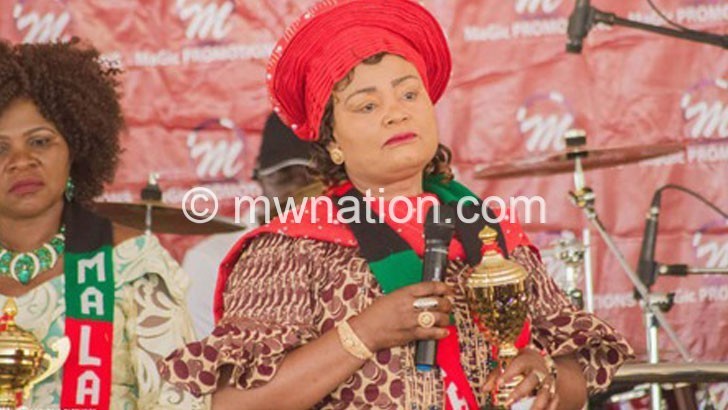PAC dates presidential candidates one-on-one
Public Affairs Committee (PAC) has stepped up its efforts to facilitate a peaceful May 21 2019 Tripartite Elections by individually dating presidential aspirants to commit to signing a peace declaration.
In its schedule, the quasi-religious body will start by meeting Peter Dominic Kuwani of Mbakuwaku Movement for Development (MMD) this Wednesday morning before engaging Minister of Health Atupele Muluzi, who is presidential candidate for United Democratic Front (UDF), later in the afternoon. The meetings are scheduled for Sunbird Capital in Lilongwe.

PAC executive director Robert Phiri said in an interview that the schedules for other candidates will be released upon confirmation.
He described the peace declaration as one of the conflict management tools, a goodwill document, a stepping stone for dialogue and mediation facilitation prior and beyond election period aimed at achieving political settlement among presidential candidates.
Said Phiri: “It helps leaders of different political divide to come under one roof and committee themselves to peaceful settlement should there be electoral stalemate.
“It [the document] gives PAC the convening power and gravitas for dialogue and mediation as was the case in 2014 electoral stalemate.”
He cites securing a shared minimum consensus among four presidential candidates on the contentious issue on the stalemate in the 2014 elections as one of PAC’s achievements.
“With peace declaration, entry points for dialogue became a reality in 2014 and the electoral stalemate was diffused,” reads a document by PAC on the impact of the peace declarations.
However, while applauding the initiative, some political parties and commentators have urged PAC to work on the implementation of such declarations if they are to remain relevant.
UTM Party secretary general Patricia Kaliati said her party is appalled by continued violence acts in the country and failure by responsible authorities to take the perpetrators to account.
“When they call for the signing of such declarations they should mean business.
“We have signed a lot of declarations, but people are still being beaten up, handouts are still being given out and planting of some party flags is being prohibited in some areas,” she said.
Kaliati was apparently referring to Section 7(3) of the Malawi Electoral Commission (MEC) peace code which presidential candidates signed during presentation of nomination papers in February. The code calls for punishment to anyone who dares to uproot party flags of their opponents.
Malawi Congress Party (MCP) spokesperson the Reverend Maurice Munthali, while commending the initiative, said it was unfortunate that there are “some citizens who have violence in their DNA” and they are left scot-free.
Blantyre-based political commentator Humphreys Mvula faulted the governing Democratic Progressive Party (DPP) for not being proactive in curbing violence allegedly perpetrated by its young supporters.
He said: “This is a good initiative, but on its own PAC has no mechanism to reinforce peace among political party followers.”
Mvula also commended the idea of approaching candidates privately, saying it will be difficult to settle issues with the incumbent President who might not like to be cautioned in public. He further advised the quasi-religious body to act as a conciliator other than only concentrating on its advocacy role.
On his part, Chancellor College based political scientist Ernest Thindwa stressed that if the governing party is not made to change, acts of violence will continue in the country.
“Stopping or ending political violence is beyond MEC and PAC. Our security agencies are helpless, unless they are allowed to act independently and professionally, these issues will continue,” he said.
On his part, DPP spokesperson Nicholas Dausi said he does not see anything wrong with parties signing a number of peace declarations.
He is also on record as having distanced DPP from political violence, stating that some of the party’s rivals dress hooligans in its colours to paint a negative picture.
Apart from the peace declarations, PAC also plans to set up a six member mediation team to resolve election stalemates as well as a mobile phone violence reporting app.
The quasi-religious body formed in 1992 during the country’s political transition from one party to multiparty system of government, has also engaged 140 youths within its structures nationwide to capture cases of violence and report the same under what it calls Early Warning and Early Response System.
Failure by political parties to promote peace during elections has resulted in bloodshed in countries such as Zimbabwe, Kenya and Gambia just to mention but a few. In 2014, then incumbent president Joyce Banda, who had ascended to the presidency in April 2012 in line with constitutional order after the death of president Bingu wa Mutharika, threw the country into a legal maze when she attempted to nullify the May 20 2014 Tripartite Elections, citing electoral fraud and irregularities as reasons for her decision.
But constitutional law experts dismissed her call, saying the President has no mandate under the Constitution and electoral laws to invalidate results of an election. n





